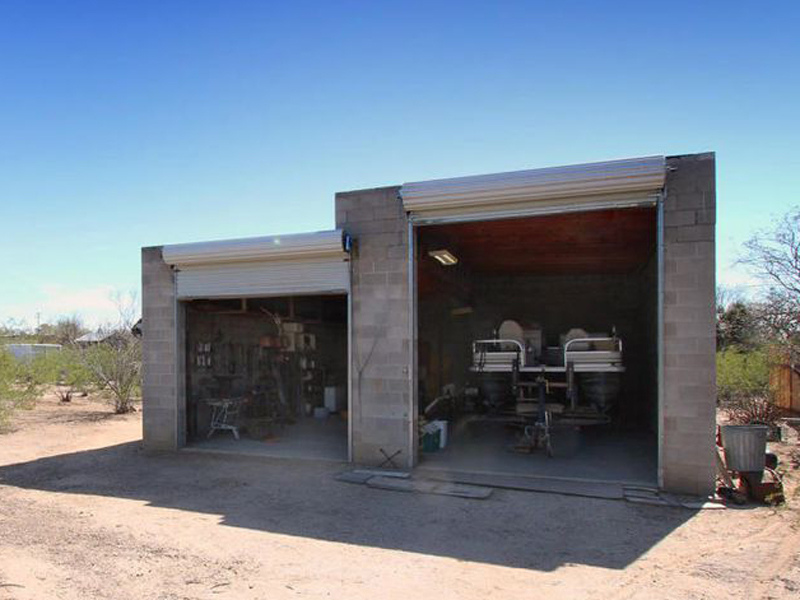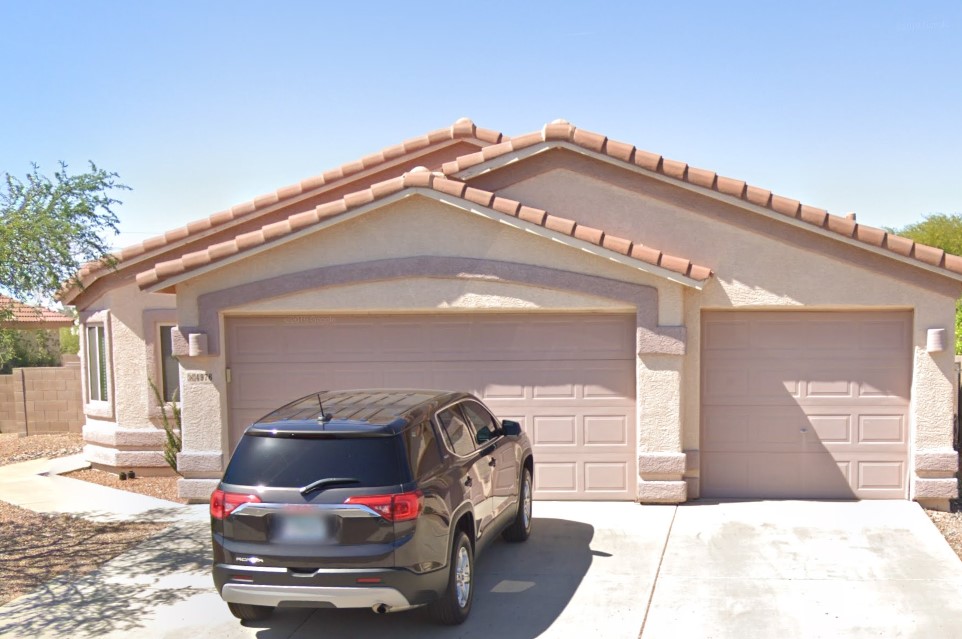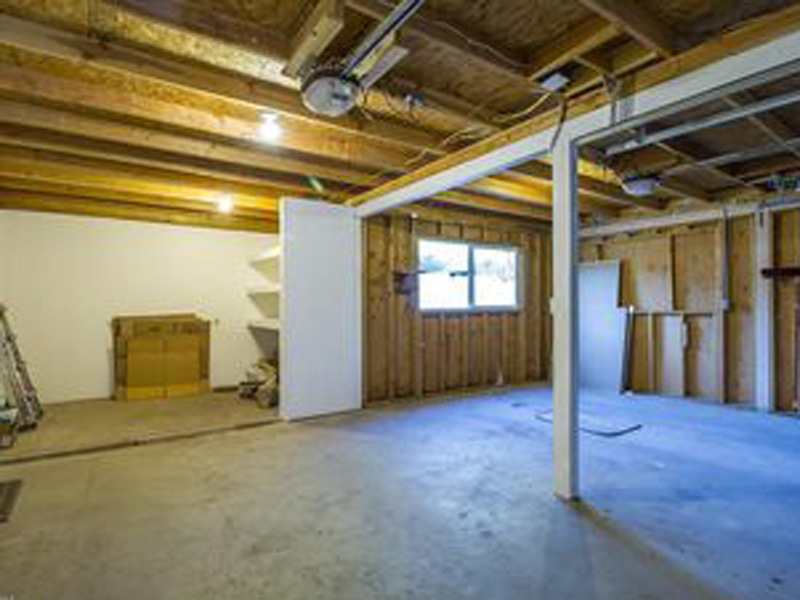Is Your Garage Door Stuck? Right here's What to Do First
When your garage door will not open up, begin with these important security checks prior to attempting any kind of repair work. First, make certain no one is standing near the door which vehicles are clear of the opening. Search for apparent indications of damages like busted panels, curved tracks, or hanging wires. If you see a snapped springtime or badly damaged elements, stop quickly and call an expert—-- these repair work need specialized devices and competence to deal with safely.

Check These 6 Points Before Calling a Professional
Prior to assuming you need expensive repair work, run through this quick analysis list that resolves most garage door issues:
-
Source of power: Confirm the opener is connected in and the electrical outlet is functioning
-
Remote batteries: Change dead batteries in your remote
-
Manual lock: Check if a person inadvertently engaged the hand-operated lock
-
Blockages: Look for particles obstructing the door's course or sensors
-
Emergency launch: Make sure the red emergency situation cable hasn't been pulled
-
Breaker: Validate the garage circuit hasn't stumbled
These simple checks deal with approximately 70% of garage door issues without requiring expert treatment.
10 Typical Reasons Your Garage Door Won't Open
Understanding why your garage door opener isn't working aids you select the appropriate service. Below are the most regular causes property owners experience:
Dead remote batteries represent the simplest solution—-- when batteries pass away, the remote can not send signals to the opener. Power interruptions or stumbled breakers reduced electrical energy to the motor. Broken springs protect against the door from raising properly and need instant expert attention. Sensor misalignment reasons security systems to block door operation. Track obstructions stop rollers from moving efficiently. Electric motor overload triggers automatic shutoffs when the opener finds resistance. Limitation switch issues puzzle the opener regarding door setting. Cable television damages interrupts the training device. Weather-related concerns influence door movement during extreme temperature levels. Component wear from age slowly decreases system performance.
Issue # 1: Dead Remote Batteries
When your wall surface button works yet your remote does not, dead batteries are usually the offender. The majority of garage door remotes make use of either 3-volt lithium or 12-volt alkaline batteries. Remove the back cover of your remote and examine the battery type. Replace with fresh batteries and examine the remote. If it still doesn't work, you might need to reprogram it to your opener. Consult your opener's handbook for particular reprogramming directions, as the procedure differs by supplier.
Issue # 2: Power Supply Issues
Garage door power issues typically stem from loosened links or tripped circuits. Examine that the opener is securely linked into its electrical outlet—-- resonance can loosen connections gradually. Test the outlet with another device to validate it's functioning. Analyze your home's breaker box for tripped circuits, especially if you've experienced storms or power variations. GFCI outlets might have tripped and require resetting. If the opener has power however won't react, the concern likely lies somewhere else in the system.
Problem # 3: Broken or Damaged Springs
Busted garage door springs are amongst the most hazardous elements to deal with. If you listen to a loud bang from your garage or discover the door really feels incredibly hefty when attempting to raise by hand, a springtime has actually likely broken. Torsion springtimes run horizontally above the door, while expansion springs rest on either side. Never attempt springtime repair work yourself—-- these parts store tremendous tension that can cause serious injury or death. Professional substitute normally costs $150-$300 however ensures your safety.
Issue # 4: Obstructed Safety And Security Sensors
Modern garage doors feature safety and security sensors that avoid closure when objects are identified. These sensing units can stop the door from opening up if they're filthy, misaligned, or blocked by particles. Tidy sensing unit lenses with a soft cloth and ensure nothing blocks the unnoticeable light beam in between them. Inspect that sensors are correctly straightened—-- a lot of have sign lights that reveal link status. Sensor issues usually resolve with simple cleaning and change.
Problem # 5: Track Obstructions or Damages
Garage door tracks overview rollers as the door moves up and down. Dust, debris, old grease, or tiny things can jam the system. Inspect tracks visually and remove any kind of blockages with a brush or fabric. Seek dents, bends, or warping that might hamper smooth how to tell if your garage door spring is failing procedure. Small track changes are feasible for useful house owners, however significant damages calls for expert repair work to avoid further troubles or safety and security threats.
Trouble # 6: Garage Door Opener Electric Motor Issues
When the garage door motor runs but the door does not relocate, numerous issues could be liable. The electric motor may be strained and shutting off as a safety measure. Equipment wear, particularly in older units, can prevent appropriate operation. Chain or belt drive issues influence power transmission. If you hear uncommon grinding, clicking, or humming noises, quit utilizing the opener right away. Electric motor fixings commonly set you back more than substitute, particularly for devices over 10 years old.
Step-by-Step DIY Troubleshooting Overview
Follow this systematic approach to garage door repairing while prioritizing security throughout the procedure:
Action 1: Test the wall switch initially. If it works yet the remote doesn't, concentrate on remote problems. If neither works, inspect power supply.
Step 2: Analyze the hand-operated launch cord. If it's been drawn, the opener is disengaged from the door. Press the cart back to reconnect.
Step 3: By hand check the door by disengaging the opener and attempting to raise the door by hand. It must move efficiently and stay in location when half-open.
Step 4: Evaluate noticeable parts for damages, paying unique interest to springs, cable televisions, and tracks.
Tip 5: Inspect all safety and security functions including sensors, restriction switches, and auto-reverse features.
Action 6: Examination different controls (remote, wall surface switch, keypad) to separate the problem source.
Always put on safety glasses and work handwear covers when performing assessments, and never ever attempt repair services on springs or high-tension components.
When to Call a Specialist vs. do it yourself Solutions

Understanding when to call a garage door professional versus attempting DIY repair services protects both your safety and your purse. Deal with these problems on your own: dead remote batteries, power supply troubles, minor track cleansing, sensing unit cleansing and alignment, and fundamental lubrication.
Never try these repair services yourself: spring substitute or adjustment, cable television repair services, major track realignment, electric circuitry concerns, opener motor replacement, or any type of repair work involving high-tension elements. Professional specialists have actually specialized devices, training, and insurance policy to handle dangerous repair services safely.
Consider repair costs versus substitute prices, especially for doors over 15 years old. Modern garage doors provide far better safety and security attributes, energy effectiveness, and dependability than older versions.
Emergency Garage Door Solutions
When you're stuck to a garage door that will not open and need immediate accessibility, follow these emergency treatments:
Handbook Procedure: Draw the red emergency release cable to disengage the opener. This permits hands-on procedure but calls for appropriate strategy to prevent injury. Lift the door gradually and equally, utilizing leg muscles instead of your back. Many household doors consider 100-150 extra pounds, making them workable for many adults.
Short-lived Repairs: If the door opens manually but won't stay up, prop it open with sawhorses or clamps—-- never utilize your body or vehicles as assistances. For doors that won't shut totally, make certain the opening is protected if you have to leave.
Emergency situation Service: Several garage door companies offer 24/7 emergency service for situations including safety concerns, trapped vehicles, or full system failures. While more pricey than routine solution telephone calls, emergency repair work give prompt options when required most.
Safety and security Warning: What NOT to Do
Garage door security requires recognizing dangerous repair work that need to never ever be tried by home owners:
Never ever attempt to fix springs—-- they keep enough power to create fatal injuries when they break or are improperly handled. Do not compel a stuck door—-- this can harm the opener, tracks, or door panels, developing much more expensive problems. Prevent bypassing safety features—-- sensing units and auto-reverse devices avoid severe injuries and residential or commercial property damage.
Don't ignore strange noises—-- grinding, scratching, or banging sounds show troubles that aggravate in time. Never ever use the door if cords are torn or broken—-- the door could fall all of a sudden. Do not try electrical repair work unless you're a qualified electrical expert—-- garage door openers use both 120V household current and low-voltage control circuits.

Preventive Upkeep to Prevent Future Issues
Regular garage door maintenance protects against most usual problems and prolongs system life-span significantly:
Month-to-month Jobs: Aesthetic inspection of all components, testing auto-reverse security features, examining and tightening up hardware, and cleaning tracks and sensing units.
Quarterly Jobs: Lubing all moving get rid of suitable garage door lubricant, testing manual procedure, and examining climate securing.
Annual Tasks: Professional inspection and tune-up, springtime modification if needed, and opener upkeep consisting of belt or chain adjustment.
Seasonal Jobs: Preparing for weather extremes, checking insulation, and changing opener settings for temperature changes.
Consistent maintenance expenses much less than emergency situation fixings and ensures trusted operation year-round.
Garage Door Won't Open Up Frequently Asked Questions
Why won't my garage door open with the remote however collaborates with the wall switch?
This generally suggests dead remote batteries, signal disturbance, or the demand to reprogram the remote. Examine batteries initially, then consult your opener manual for reprogramming directions.
Can I manually open my garage door if the power is out?
Yes, pull the red emergency situation release cord to disengage the opener, then lift the door by hand. Be gotten ready for the door's complete weight and lift with appropriate technique to prevent injury.
How do I understand if my garage door springtime is damaged?
Signs consist of a loud bang from the garage, the door feeling very hefty when lifting manually, noticeable gaps in the spring coils, or the door only opening up a few inches prior to quiting.
Is it secure to utilize my garage door if it won't open right?
No, partial operation suggests mechanical troubles that could worsen instantly. Quit using the door and have it examined by an expert to stop additional damage or injury.
What should I do if my garage door opens up however won't close?
Check safety sensing units for obstructions or misalignment, analyze the tracks for debris, and evaluate the auto-reverse function. If these do not resolve the problem, get in touch with an expert.
Just how much does it set you back to repair a garage door that will not open?
Prices differ widely depending upon the issue: battery replacement ($5-$10), professional diagnosis ($50-$100), spring replacement ($150-$300), or opener replacement ($200-$500).
Can weather affect my garage door's capacity to open?
Yes, extreme cold can enlarge lubricants and influence steel components, while warmth can create expansion concerns. The majority of issues solve as temperatures normalize, yet persistent problems may require specialist attention.
Why does my garage door open up a couple of inches after that stop?
This typically suggests busted springs, restriction button troubles, or track blockages. The opener's safety attributes quit procedure when resistance is detected, protecting against damage to the electric motor or door.
Get Professional Assist for Complex Concerns
When DIY repairing doesn't resolve your garage door issues, specialist technicians provide the knowledge and devices needed for safe, lasting repairs. Qualified professionals detect issues accurately, utilize manufacturer-approved components, and offer service warranties on their work.
Specialist services include: extensive system inspections, springtime and cable television replacement, opener fixing and substitute, track positioning and substitute, electric troubleshooting, and emergency solution telephone calls.
What to expect: in advance prices, qualified and insured professionals, same-day service for lots of repair work, and follow-up maintenance referrals.
Most garage door companies provide free estimates for major fixings and can provide instant options for immediate problems impacting home safety and security or vehicle gain access to.
Getting Your Garage Door Working Again
A garage door that will not open up does not have to spoil your day or damage your budget. Start with simple troubleshooting actions like examining power, changing batteries, and examining for obvious obstructions. Numerous issues have quick DIY remedies that restore typical procedure within mins.
Nevertheless, acknowledge when professional assistance is needed—-- specifically for spring-related problems, electric issues, or complicated mechanical failings. Trying hazardous fixings yourself runs the risk of major injury and often develops more costly troubles.
Routine upkeep protects against most garage door problems and makes sure dependable operation for years to come. When troubles do take place, address them without delay to stay clear of even more expensive repair services and maintain your home's safety and ease. Whether you need an easy battery substitute or complete system overhaul, options exist to obtain your garage door working smoothly once more.